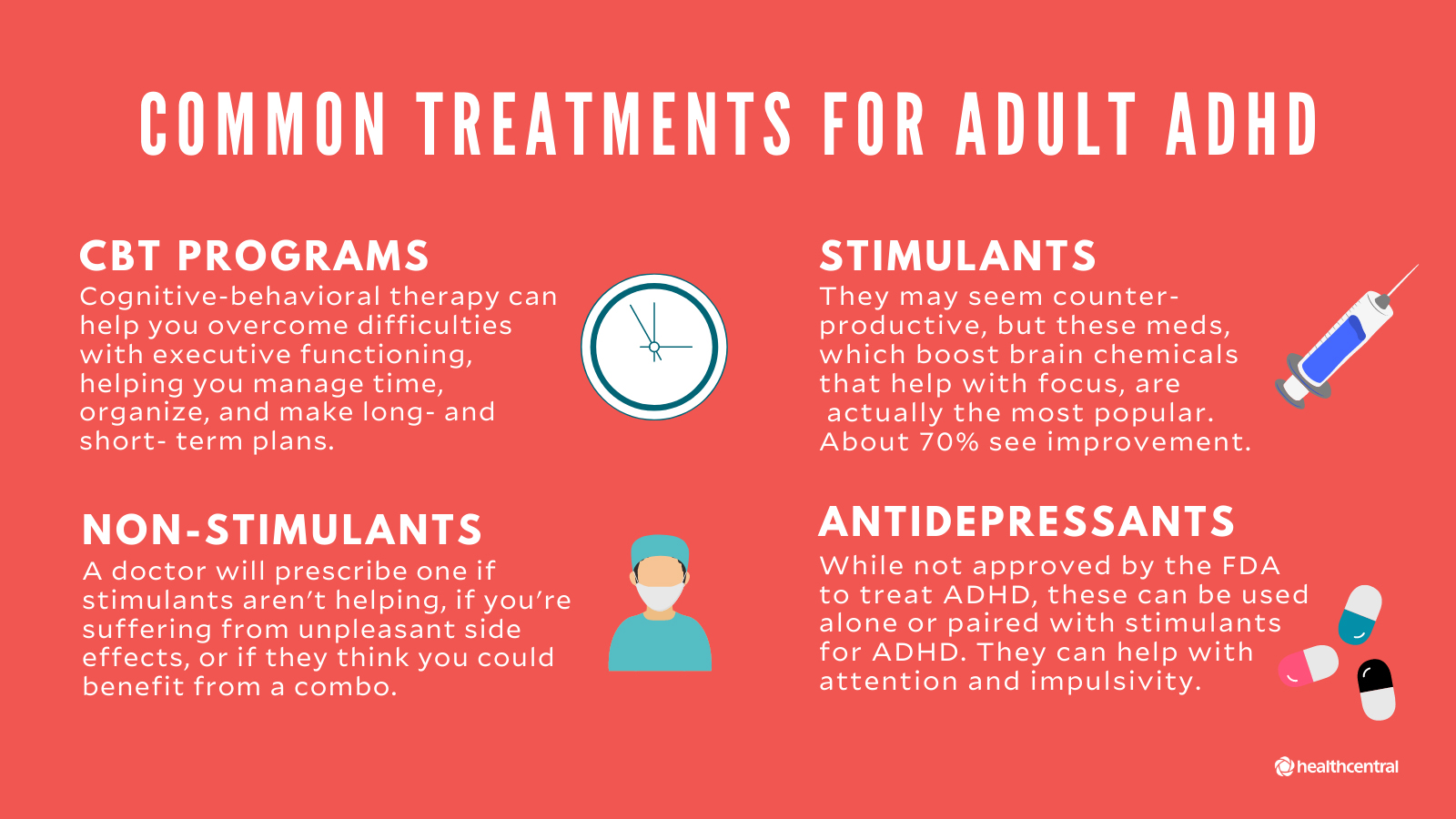Telehealth Psychiatrist Sessions for Convenient Care
Telehealth Psychiatrist Sessions for Convenient Care
Blog Article
The Benefits of Individualized ADHD Therapy Plans for Better End Results
The implementation of individualized ADHD therapy strategies has emerged as a crucial method in improving restorative end results for people impacted by this condition (ADHD treatment). By recognizing the one-of-a-kind symptoms of ADHD in each individual, these personalized interventions advertise better involvement and motivation, inevitably leading to extra reliable coping approaches.
Comprehending ADHD Variability
Although Attention-Deficit/Hyperactivity Condition (ADHD) is frequently perceived as a particular problem, its indications can vary considerably among people. This irregularity is affected by a series of elements, consisting of age, sex, existing side-by-side problems, and environmental contexts. Kids with ADHD may show hyper behaviors, while grownups may mostly have a hard time with attention deficiencies. Gender distinctions also contribute, as men are much more regularly detected with ADHD and usually show more overt signs and symptoms, whereas women may offer with less evident inattentiveness.
Furthermore, people with ADHD may experience a range of psychological and behavioral obstacles, such as anxiety or opposite defiance, that can complicate diagnosis and therapy. The interaction of these aspects can lead to diverse experiences of ADHD, demanding a nuanced understanding of the disorder. It is additionally worth keeping in mind that ADHD can present in a different way throughout various social contexts, affecting how signs and symptoms are recognized and addressed. This understanding emphasizes the relevance of identifying ADHD as a multifaceted problem, which requires personalized methods to treatment that take into consideration the special demands and experiences of each individual.
Key Components of Personalization
Personalized ADHD treatment plans are based in several crucial elements that make sure efficient administration of the condition. A thorough evaluation is crucial, including standardized ranking ranges, meetings, and behavior observations. This detailed examination allows medical professionals to comprehend the individual's special signs, toughness, and challenges.
Second, the involvement of several stakeholders, including moms and dads, teachers, and the person, adds to an alternative view of the individual's requirements. Collaboration cultivates a helpful setting that can adapt to the individual's context and way of living.
Third, therapy plans need to be versatile and adaptable, enabling adjustments based upon continuous feedback and the person's advancing requirements. This adaptability allows the integration of various healing methods, such as behavioral treatments, psychoeducation, and drug monitoring.
Moreover, social and contextual elements need to be considered. Recognizing the person's history, values, and choices guarantees that the treatment is appropriate and considerate.
Finally, routine follow-ups and analyses are vital to keep track of progress and make needed adjustments. By focusing on these crucial parts, individualized ADHD therapy plans can considerably boost the performance of interventions, resulting in boosted outcomes for individuals with ADHD.
Improved Interaction and Motivation
To successfully advertise enhanced interaction and inspiration in people with ADHD, it is important to incorporate approaches that reverberate with their passions and toughness. Individualized treatment plans that straighten with a person's enthusiasms can lead to enhanced involvement in restorative activities, fostering a sense of possession and interest for the procedure.
Making use of interactive and innovative methods can additionally substantially improve motivation. Integrating gamification aspects or real-world applications of skills can make tasks more enticing and pertinent. This not just captures interest however also reinforces finding out via delightful experiences.
In addition, establishing attainable and meaningful objectives customized to the individual can bolster inspiration. When people see their progress in the direction of directly considerable objectives, they are most likely to continue to be engaged. Regular responses and acknowledgment of achievements can even more sustain inspiration, creating a favorable responses loop that encourages ongoing initiative.
Finally, fostering a supportive setting where people really feel comprehended and valued can considerably impact their involvement levels. When therapy strategies are developed collaboratively, incorporating input from the individual, they are most likely to really feel spent in their trip, eventually causing improved end results in managing ADHD.
Improved Coping Methods
Establishing enhanced dealing methods is crucial for people with ADHD, as it outfits them with efficient devices to browse daily difficulties. An individualized treatment plan permits the recognition of certain coping systems tailored to the individual's special requirements and situations - ADHD cmc psychiatry treatment. Strategies such as mindfulness, time monitoring skills, and organizational strategies can be incorporated into day-to-day routines, fostering a feeling of control and lowering anxiety
Mindfulness methods, consisting of reflection and deep-breathing workouts, aid people with ADHD concentrate their interest and regulate their feelings. Time administration strategies, such as using timers or breaking jobs right into smaller, convenient steps, can alleviate sensations of bewilder. Additionally, business tools like planners and checklists can boost efficiency and liability.
Lasting Positive Results
Implementing personalized ADHD therapy plans can result in significant long-lasting positive outcomes for people. website here These tailored methods, which think about special signs, preferences, and life circumstances, facilitate much more reliable administration of ADHD symptoms over time. By concentrating on the certain needs of the person, these plans enhance adherence to therapy methods and foster better interaction in healing activities.

Moreover, tailored therapy strategies can dramatically reduce the threat of comorbid problems, such as anxiety and depression, which are often associated with ADHD. Early treatment and constant support assistance individuals build resilience and coping strategies, promoting general mental wellness.
Eventually, the lasting positive end results of customized ADHD therapy intends not only boost the lifestyle for individuals but additionally contribute to their overall well-being and success in numerous life domains. This all natural strategy emphasizes the relevance of customized care in taking care of ADHD effectively.
Final Thought

Report this page